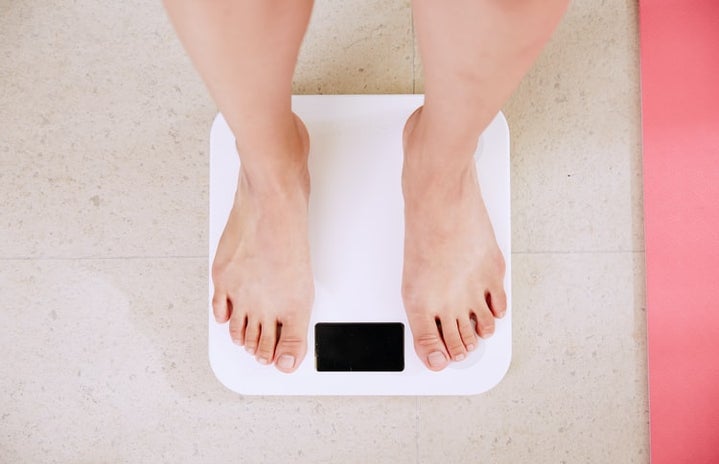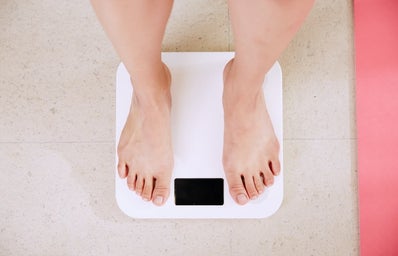Last week, I was sitting in my living room scrolling on my phone when I heard my roommate squeal, “My package is here!”. Intrigued, I looked over to her rushing towards me with a decent sized cardboard box filled with none other than one of my worst nightmares-
a scale.
As an insecure teenager in high school, I remember spending hours of the day scrutinizing every roll, every pinch of fat I could find on my body while spinning in front of the mirror. No matter what angle I contorted my torso, it never fit the image I held myself to – the one that Instagram models and celebrities showcased on the regular with seemingly no effort. I used to sneak a scale into my bathroom three times a day, somehow thinking that if I weighed myself so often the numbers would go down eventually and I’d finally look the way I dreamed about.
The scariest part wasn’t even my obsession with recording the numbers – it was that I was almost underweight at the time but thought that I looked absolutely unacceptable by society’s skinny standards. I thought I was “fat.” I would praise other girls for their beautiful, feminine curves but refused to accept them on my own body.
The part that people don’t understand about eating disorders and body dysmorphia is that no matter who tells you that you “look good,” that “you’re so skinny,” or that they wish they “looked like you,” you don’t see what they see. You see a warped version of yourself shaped by your insecurities and desires to look like someone else. You think that if you look a certain way, everything will get better: you’ll be happier, you’ll get that guy’s number, or you’ll suddenly be liked more.

It took me months to understand how the scale was damaging my self-image, and even more to resist the urge to step back on it. My recovery process, like many others, was not a straight shot, but full of good moments clouded by bad ones. Days of indulging with friends would lead to days of fasting – thinking that I could undo the “weight gain” (which in reality was simply normal bloating) by not eating.
Of course, some people have really healthy relationships with their scales. Take my roommate, for example, who is excited to continue her healthy, fit lifestyle with a tool to track her progress. For others, like me, it can be a haunting reminder of an unstable past. How I learned to love my body has nothing to do with accepting numbers as a definition of myself. Instead, I live by these mantras:
Our bodies are meant to live life with us.
They are meant to enjoy that late night slice of pizza with your besties on a Saturday night. They are meant to love that piece of cheesecake you had during a 3-course meal downtown. They can even feel amazing after that 1-mile run on a Wednesday morning that you decided to cram in before your first class, too.
I learned to stop fighting my body. I treat it with care; I eat healthy for the most part and indulge when I want, I work out when I feel the need to work up a sweat, and I take mental breaks when I’m feeling overwhelmed. At the end of the day, we were born to look the way we are. Instead of trying to morph yourself into that model or ideal image you have in your mind, work on being the best you that you can be. Treat yourself, encourage yourself, and most importantly-
Love yourself.




